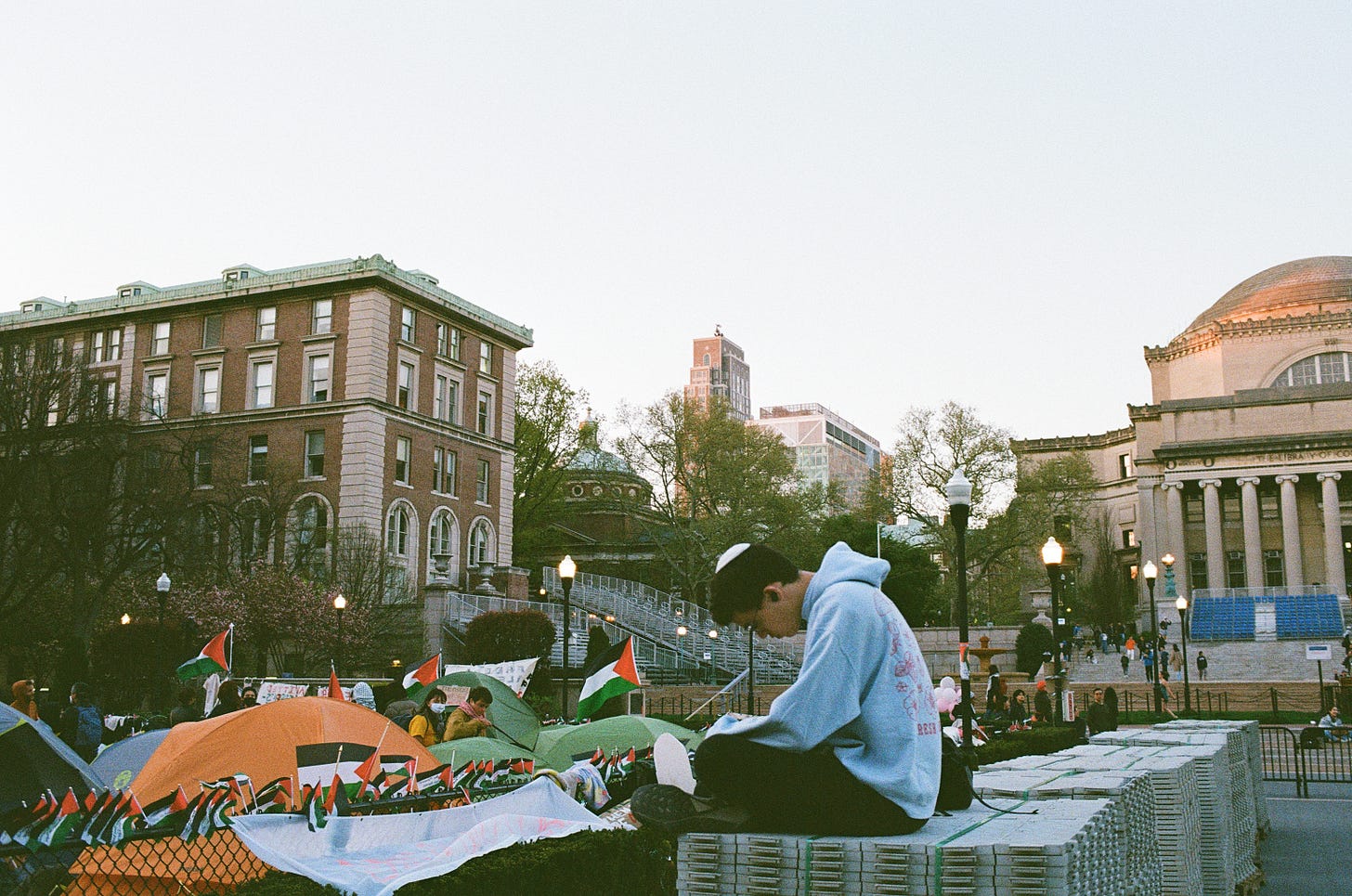It’s Time to Add Civic Dialogue to the Core
Last semester, I started a weekly discussion group to debate the most pressing political issues of our time. It was a far cry from the divisiveness and hostility we saw on campus.
There is a myth spreading around Columbia and the nation as a whole.
It goes something like this: We are living through an unprecedented free speech crisis. Liberal administrators are choking student discourse from the top down. Anything that does not fit the bureaucratic litmus test is gagged, hunted, and routinely censored.
The problem with this narrative is that it is false.
While administrators tend to be left-leaning, the Columbia Republicans club endures. So do the John Jay Society, Columbia’s chapter of the American Enterprise Institute, and Lions for Life. Almost all of them receive university funding.
On the other side of the aisle, last spring we saw the largest student challenge to University administration in over half a century. The consequence: almost nothing. Nearly all of the Barnard students disciplined for participation in the April 17-18 Gaza Solidarity Encampment reached a resolution for amnesty with the college, and all Columbia students arrested for breaking into Hamilton Hall saw their charges dropped over the summer. Regardless of their outcome, these cases revolve around participation in the encampment or the occupation—in other words, students are being punished for conduct, not speech.
Yet, behind the veil lies a problem. Something still feels off. Although top-down censors are not the culprit, everything is certainly not fine.
The feeling of bitter divisiveness that tore apart the campus last year made it evident that something had gone terribly wrong with the way in which we disagreed with one another. At Columbia, real, heated disagreement on divisive issues is to be expected and cherished. What is regrettable is when those differences become insurmountable, suffocating, and alienating. Divisiveness is not an issue in itself—it becomes one when it starts to break apart friendships and when the political bleeds into the personal. The fact that conversations between pro-Palestine protestors and Israeli students became close to impossible is more than a political difference: It is the symptom of a deeper disease.
The diagnosis is simple: Knowing how to have constructive cross-ideological conversations is not innate. It is born out of practice, and we have lost the habit. Although Columbia hosts over two dozen political clubs, almost all of them provide only one-sided engagement if not pre-professional networking. To build back the Columbia community, we need to build back the habit of productive discourse and foster new forums for genuine, open, and respectful disagreement.
Last semester, I started a new initiative called the Civic Dialogue Fellowship. We selected 14 students, half of them left-of-center and half right-of-center. The group convened once a week over a free dinner (sponsored by the Foundation for Individual Rights and Expression) to thoughtfully discuss the most pressing issues of the day. Disagreement was expected, and civility respected.
The fellowship brought together libertarians and liberals, a Czech journalist and a Saudi teacher, a first-year and a young father. In the end, even a journalist from the Washington Post joined to film the last discussion.
The discussions usually started broad before narrowing down to the concrete. We applied philosophical questions about the limits of autonomy to organ transplants, abortion, and prostitution; abstract prompts about the role of the university led to clashes on affirmative action, the Core, DEI, and public funding. The principal goal was for each of us to seek ideological consistency while remaining open to change.
The fourteen ideologically diverse students in the fellowship are proof that the Columbia community is capable of becoming a place where ideological differences are no burden.
Ideally, this environment wouldn’t just be reserved for a small group of students.
Similar experiences should be required for first-year students as part of the Core Curriculum, treating the art of civic dialogue as an important academic (and social) foundation just like reading masterpieces of Western thought in Literature Humanities and Contemporary Civilization. This could be as simple as a one-credit pass-fail “class” that meets over dinner, or a module integrated within orientation week. Until the University treats civic dialogue with the same seriousness as other Core classes, however, I believe initiatives like the Civic Dialogue Fellowship present our best path forward.
This fall, we are recruiting a new cohort. Students from all majors and schools, all political leanings and backgrounds are invited to apply, so long as they are united by one conviction: the desire to step out of their bubble, to engage with the “other side,” and actively cultivate a culture of mutual understanding.
Together, I have faith that we can rebrand our school into a bastion of ideological pluralism.
Apply for the fall 2024 Civic Dialogue Fellowship here.
Nathan Darmon is a senior studying philosophy and government in the dual degree program between Columbia and Sciences Po Paris. He is the founder of the Civic Dialogue Fellowship.





I applaud your efforts to improve civil dialogue at the university. However, to be blunt, I'm not entirely sure what the point is of the paragraph describing the Gaza protests and the administration's response to them. True, the punishments of the Gaza protestors were light and conduct-related. But as a thought experiment, what would have happened if a group of protesters had done the exact same things (encamped for weeks at a time, invaded Hamilton Hall) but for a right-wing rather than a left-wing cause? If students violated school rules to protest affirmative action or abortion, would the university have responded in a similar manner? The question answers itself.